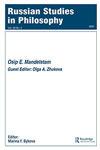亨利·乔治的改革是列夫·托尔斯泰道德学说的经济动力
IF 0.1
4区 哲学
Q4 Arts and Humanities
引用次数: 0
摘要
摘要托尔斯泰在撰写论文《我们应该做什么?》时就开始接触亨利·乔治的作品,乔治的经济思想深深吸引了他,以至于他离开了这篇论文,花时间试图理解这位美国经济学家的解决方案。起初,单一土地税的项目对他没有吸引力,他在论文中写道,“乔治建议我们承认所有土地都是国家财产,因此所有直接和间接的税收都应该被租金所取代。也就是说,每个使用土地的人都应该向国家支付租金的价值。那会是什么?……这将是奴隶制,由土地使用量决定。”然而,从阅读《进步与贫困与社会问题》的那一刻起,托尔斯泰就明确同意乔治的立场,即“土地的私人所有权是盗窃”,尽管他需要时间来理解和采纳乔治关于单一土地税的立场。本文章由计算机程序翻译,如有差异,请以英文原文为准。
Henry George’s Reforms as Economic Impetus for Lev Tolstoy’s Moral Doctrine
ABSTRACT Tolstoy became acquainted with the works of Henry George as he was writing his treatise “What Then Should We Do?” George’s economic ideas fascinated him so much that he stepped away from the treatise to spend time trying to comprehend the American economist’s solutions. At first, the project of a single land tax did not appeal to him, and he writes in his treatise, “George proposes we recognize all land as state property, and therefore all taxes, both direct and indirect, should be replaced by rents. That is, everyone who uses the land should pay the state the value of its rent. What would that be? … It would be slavery, as determined by the volume of land use.” However, from the moment he read Progress and Poverty and Social Problems Tolstoy unequivocally agreed with George’s position that “private ownership of land is theft,” though it took time for him to comprehend and adopt George’s position on the single land tax.
求助全文
通过发布文献求助,成功后即可免费获取论文全文。
去求助
来源期刊

RUSSIAN STUDIES IN PHILOSOPHY
PHILOSOPHY-
CiteScore
0.10
自引率
0.00%
发文量
14
期刊介绍:
Russian Studies in Philosophy publishes thematic issues featuring selected scholarly papers from conferences and joint research projects as well as from the leading Russian-language journals in philosophy. Thematic coverage ranges over significant theoretical topics as well as topics in the history of philosophy, both European and Russian, including issues focused on institutions, schools, and figures such as Bakhtin, Fedorov, Leontev, Losev, Rozanov, Solovev, and Zinovev.
 求助内容:
求助内容: 应助结果提醒方式:
应助结果提醒方式:


